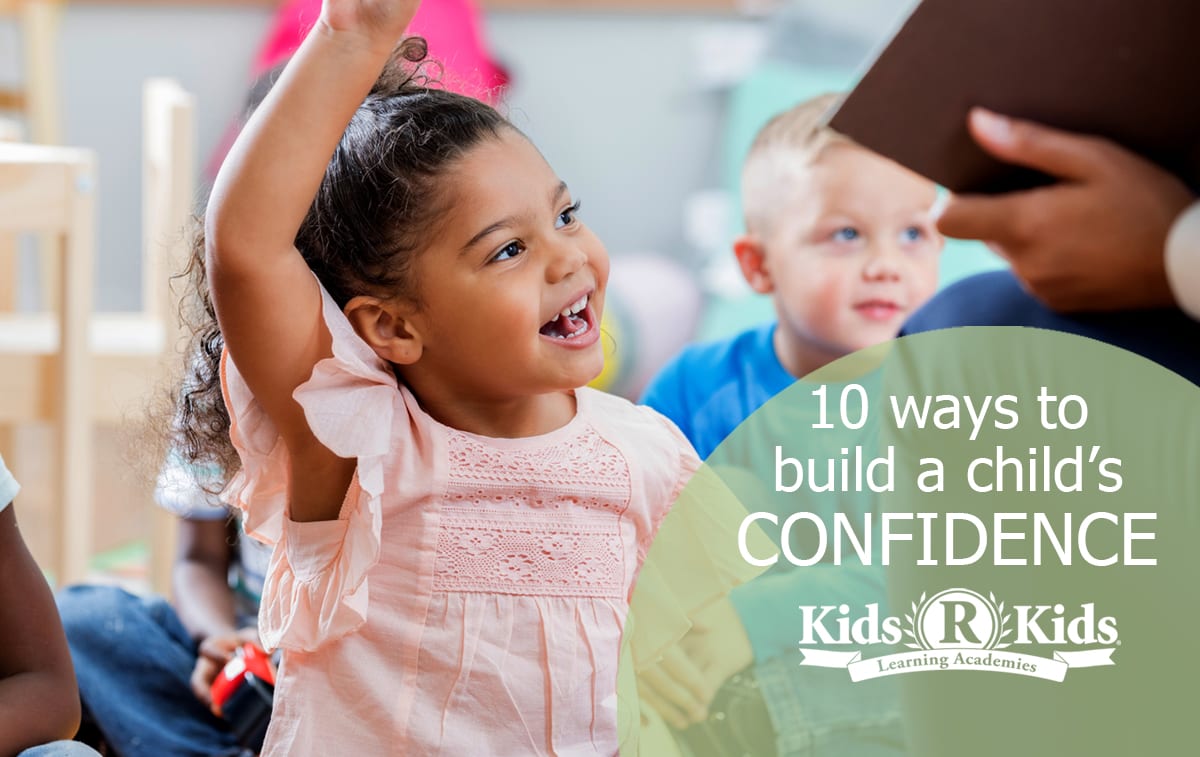
Confidence is vitally important to a child’s future happiness, health, and success. Confident children are better equipped to deal with peer pressure, responsibility, frustrations, challenges, and both positive and negative emotions.
And what is the KEY factor in developing a child’s confidence? YOU! The child’s parent.
1. Ensure they know your love is unconditional.
The way we see our kids (or the way our kids believe we see them) has a profound impact on the way they see themselves. Make it clear to your children that you love and care for them even when they make mistakes or poor decisions, and avoid harshly criticizing or shaming them.
2. Address them by their name.
Addressing children by name is a powerful and simple way to send the message that they’re important, especially when paired with friendly eye contact.
3. Give them age-appropriate “special tasks” to help you out.
In addition to chores, give children “special tasks” to help them feel useful, responsible, and competent. Using the word “special” gives children an even bigger confidence boost. Special tasks can include helping with a pet or younger sibling as needed, being your cooking “assistant,” or, for a very young child, simply dressing himself.
4. Join their play (and let them lead).
Joining in a child’s play sends the message that he is important and worthy of your time. During playtime, parents can allow children to initiate or choose the activity, as well as lead it. When parents engage in and appear to enjoy a child-led activity, the child feels valuable and accomplished.
5. Focus on improving your own confidence.
This isn’t a step you can accomplish overnight, but it’s one of the most essential on this list. Parents are a child’s first and best role models, so take time to repair your own confidence if needed. Start by making positive comments about yourself and others in your child’s presence.
6. Ask them for their advice or opinion.
Ask children for their advice or opinions on age-appropriate situations to show that you value them and their ideas. This also helps children build confidence by demonstrating that even adults need help sometimes, and it’s okay to ask for it.
7. Make special time together.
Love and acceptance are key components of confidence and self-worth, so parents should spend quality time with their children to demonstrate that they are valuable. Take him on outings, eat dinner together, play games, go outside, or do any other activity that allows you and your child to enjoy time together.
8. Set aside time when you give them undivided attention.
Parents, your child recognizes when your mind is on something else or when you’re not giving him your undivided attention. To help your child feel valued and confident, set aside time to put away the electronics, put thoughts of work or other distractions out of your mind, and truly focus your attention on your child.
9. Cultivate their sense of belonging by hanging their portraits or artwork.
Yes, even something as simple as hanging family portraits around your home can increase your child’s confidence! You can also have them create self-portraits that represent their personalities and interests, etc. and hang these around the house.
10. Shower them with hugs!
Physical affection communicates love, acceptance, and belonging, making children happy and confident. Parents of younger children can give high fives, back pats, hair tousles, and lots of hugs to show that they are cared for and valued.
By Ashley Cullins